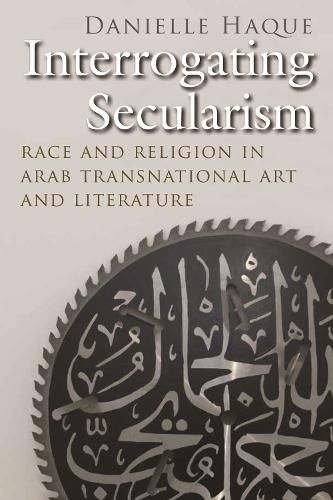Readings Newsletter
Become a Readings Member to make your shopping experience even easier.
Sign in or sign up for free!
You’re not far away from qualifying for FREE standard shipping within Australia
You’ve qualified for FREE standard shipping within Australia
The cart is loading…






Interrogating Secularism is a call to rethink binary categories of
religion
and
secularism
in contemporary Arab American fiction and art. While most studies that explore the traffic between literature and issues of secularism emphasize how canonical texts naturalize and reinforce secular values, Interrogating Secularism approaches this nexus through novels written by and about ethnic and religious minorities. Haque juxtaposes accounts of secular experience in the writing of Arab Anglophone authors such as Mohja Kahf, Rabih Alameddine, Khaled Mattawa, Laila Lalami, and Rawi Hage, with Arab and Muslim artists such as Ninar Esber, Mounir Fatmi, Hasan Elahi, and Emily Jacir. Looking at multiple genres and modes of aesthetic production, including AIDS narratives, visual art, and digital media, Haque explores how their conventions are used to subvert the ideals tied to secularism and the various anxieties and investments that support secularism as a premise. These authors and artists critique Western iterations of secular thought in spaces such as art exhibits, airports, borders, and literary discourses to capture how the secularism thesis reproduces the exclusivity it intends to remedy.
$9.00 standard shipping within Australia
FREE standard shipping within Australia for orders over $100.00
Express & International shipping calculated at checkout
Interrogating Secularism is a call to rethink binary categories of
religion
and
secularism
in contemporary Arab American fiction and art. While most studies that explore the traffic between literature and issues of secularism emphasize how canonical texts naturalize and reinforce secular values, Interrogating Secularism approaches this nexus through novels written by and about ethnic and religious minorities. Haque juxtaposes accounts of secular experience in the writing of Arab Anglophone authors such as Mohja Kahf, Rabih Alameddine, Khaled Mattawa, Laila Lalami, and Rawi Hage, with Arab and Muslim artists such as Ninar Esber, Mounir Fatmi, Hasan Elahi, and Emily Jacir. Looking at multiple genres and modes of aesthetic production, including AIDS narratives, visual art, and digital media, Haque explores how their conventions are used to subvert the ideals tied to secularism and the various anxieties and investments that support secularism as a premise. These authors and artists critique Western iterations of secular thought in spaces such as art exhibits, airports, borders, and literary discourses to capture how the secularism thesis reproduces the exclusivity it intends to remedy.